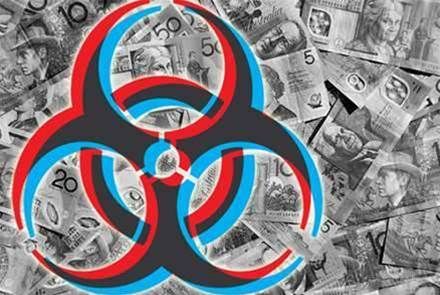The Metropolitan Police is trying to persuade London's banks to help pay for a major expansion in its Cyber Crime Unit.

Met Police Commissioner Sir Bernard Hogan-Howe has confirmed that the unit, currently 32 specialists reporting to Detective Superintendant Mark Jackson, will expand to several hundred officers next year.
But Hogan-Howe now admits he is hoping to part-fund the expansion with donations from the major banks.
In a statement issued this week by the Met Police, based on an interview in the Evening Standard newspaper, the Commissioner said the “huge injection of personnel” will “come with some significant cost”, adding: “Over the coming months we will be speaking to partners in the commercial sector, and especially in the banking industry - who are often the ones to suffer the most financial loss at the hands of internet fraudsters - to see if some of the burden of this expense can be removed from the public purse.”
Hogan-Howe said industry help is needed because while police budgets are tight, the cyber crime problem is huge, with a looming £10 billion Christmas internet spending spree across the UK. As a result criminals are also moving online, with a 60 per cent increase in cyber crime and related fraud in 2012/13.
But Hogan-Howe admitted traditional policing had failed: “Currently just a fraction of cyber crime and fraud is ever referred on to a police force, representing thousands of victims every year who do not so much as hear from an officer.”
In response, he is promising that in 2014 the Met plans “a major step change in the way we deal with cyber crime and fraud in London by establishing what will be a world-leading unit to counter them. We plan to dedicate hundreds more officers solely to these types of crime.”
And while the Met going cap in hand to the banks for funding may be a controversial approach - independent cyber security expert Mark Stollery of PA Consulting told SCMagazineUK.com there are precedents.
Stollery said the City of London Police force Insurance Fraud Department (IFED) is funded by Association of British Insurers members, and the Dedicated Cheque and Plastic Crime Unit (DCPCU) – made up of officers from the City of London and Met Police forces – is fully sponsored by the banking industry.
Stollery told SC: “I can see why the banks may be sucking their teeth and saying this is police work - but the fact is the banks are going to be suffering indirectly because they're having to pick up the pieces of their customers who are going to be suffering. However unjustifiably, they will be risking a bit of reputational damage.”
Ross Brewer, managing director for international markets at security products vendor LogRhythm, added: “Seeking funding from private organisations could prove fruitful, not just in terms of capital, but also in the fact that it may encourage organisations to report cyber crime more if they know a dedicated resource is available – particularly if they are paying for it.”
Stollery told SCMagazineUK.com: “One of the key points about cyber crime is lots of it is high-volume, low-value so no-one will be bothered to investigate one incident. But if you can join the dots and show that this particular £200 fraud is part of a multi-million pound scam, then the authorities will take action and actually start to get to the root of it. By solving that you make life better for lots and lots of people.”
He added: “The UK is at last trying to pull together everyone who has some skin in the game.”
SCMagazineUK.com contacted the British Bankers Association but no-one was available to comment at time of going to press.



_(28).jpg&h=140&w=231&c=1&s=0)
_(20).jpg&h=140&w=231&c=1&s=0)





 iTnews Benchmark Awards 2026
iTnews Benchmark Awards 2026
 iTnews Executive Retreat - Security Leaders Edition
iTnews Executive Retreat - Security Leaders Edition
 iTnews Cloud Covered Breakfast Summit
iTnews Cloud Covered Breakfast Summit
 The 2026 iAwards
The 2026 iAwards












_(1).jpg&h=140&w=231&c=1&s=0)



